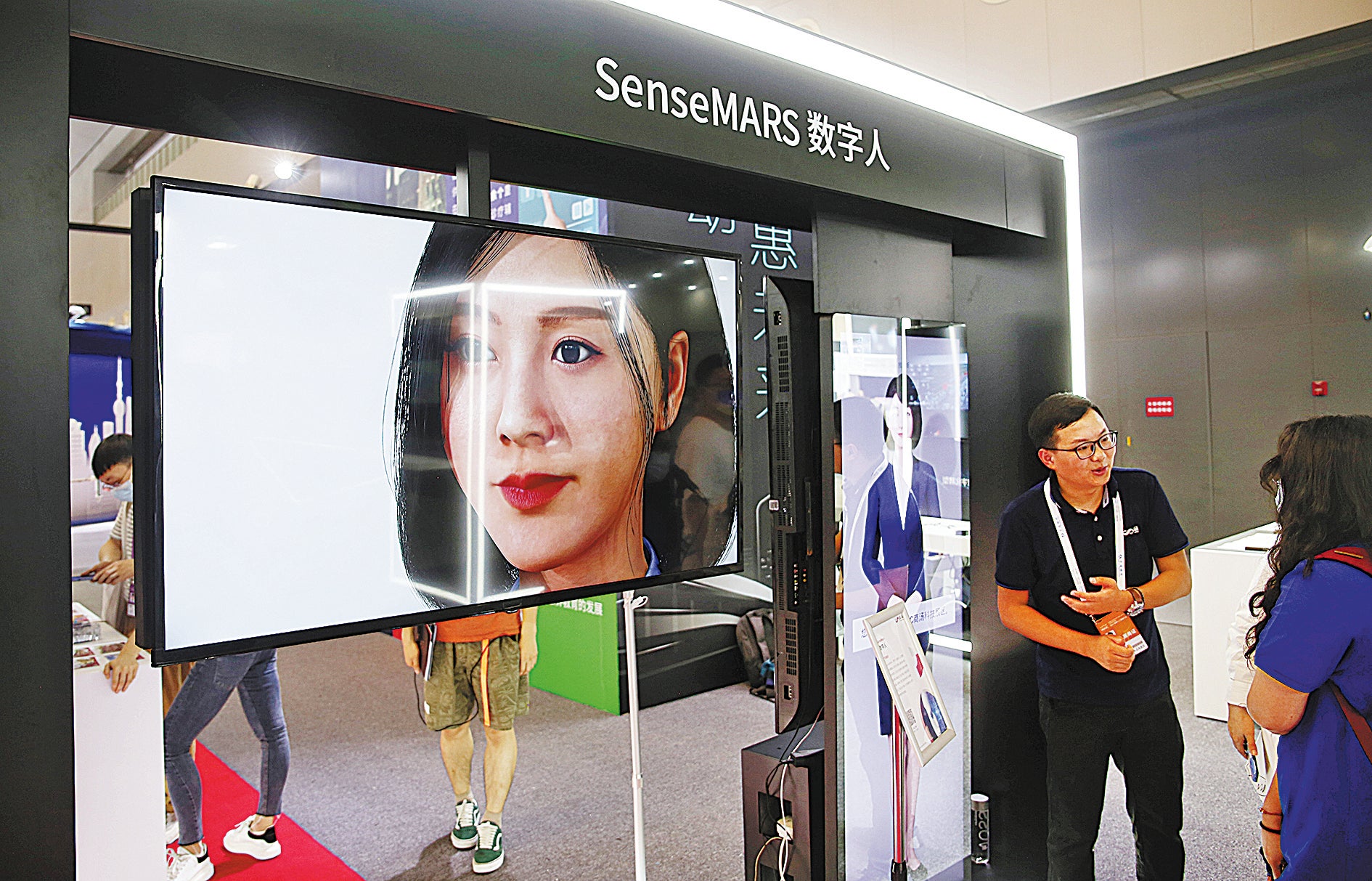The cold robots that now ooze charm
THE ARTICLES ON THESE PAGES ARE PRODUCED BY CHINA DAILY, WHICH TAKES SOLE RESPONSIBILITY FOR THE CONTENTS

In a bank in Shanghai an elegantly dressed receptionist welcomes customers. Aware that customers are in a good mood, she becomes talkative and introduces more of the bank’s wealth management services. Aware that some customers are frowning, she becomes more cautious and does nothing more than answer the questions customers ask, such as how to print itemised bank account statements.
She was the first digital employee at the Shanghai branch of Bank of Ningbo. On a screen as tall as the height of normal human beings, she can also answer more than 550 common banking business questions and more than 3,000 supplementary questions. Powered by an artificial intelligence system, she can learn to answer 50 new questions every day and, with a camera on the screen, she can also tell whether customers are smiling or not, said Luan Qing, general manager of the digital culture and entertainment business at SenseTime, which developed the digital human technology.
The digital employee offers a peek into how a wider range of sectors are starting to adopt AI-powered digital humans to increase efficiency and improve communication with customers. Thanks to rapid technological progress, virtual humans, which used to be seen only in the cash-intensive entertainment industry such as movies, are becoming more prevalent in people’s daily lives, including work, experts and company executives said. From virtual presenters who broadcast news 24 hours a day to virtual dancers and singers attracting fans all over the world to a digital employee winning a Chinese real estate developer’s best new employee award last year, digital humans are becoming smarter. They illustrate how Chinese startups and heavyweights putting virtual beings to wider applications, they said.

During the Beijing Olympic and Paralympic Winter Games earlier in 2022 about 20 digital humans made their debut. They played different roles: AI sign language guides that explained the competitions to the hearing impaired among the audiences; weather forecast presenters; an Olympic public welfare ambassador; and livestreaming presenters that sold Winter Olympics souvenirs online.
More than 280,000 companies in China engage in businesses related to digital humans, with the compound annual growth rate of companies registered in the past five years reaching nearly 60 per cent, says Qichacha, a company that tracks business registrations.
With the development and integration of AI, virtual reality, high-precision rendering and other technologies, digital humans are becoming more similar to humans, from image, facial expression, posture, action, to speech, semantics and voice, which advance their resonance with people, Luan of SenseTime said. “Digital humans produced by artists were common in movies and games. The production process was usually labour-intensive and required high artistic skill, thus pretty costly. But now, assisted by AI, as the production process and operation of digital humans becomes increasingly automated, and the production cost falls, digital humans will likely enter more sectors such as finance, retail, governance and automobile.”
The market for virtual celebrities was worth 6.22 billion yuan (£744 million) in China last year, nearly 80 per cent more than in 2020. It is expected to rise to 20 billion yuan (£2.4 billion) over the next two years, a report by the market consultancy iiMedia said. Xiaoice, another AI company, is also looking to tap into the opportunities of digital humans. The company developed Cui Xiaopan, the first digital employee of Chinese real estate developer Vanke. “She” is in charge of reminding employees to pay the company’s bills on time and collect bills due. The resolution rate of the cases Cui handled was as high as 91.44 per cent, and the new employee was ultimately chosen for Vanke’s best new employee award in 2021.
Li Di, CEO of Xiaoice, said, “With joint efforts with our partners, an era has arrived in which AI beings are becoming reliable, stable and indefatigable.”
Previously published on Chinadaily.com.cn
